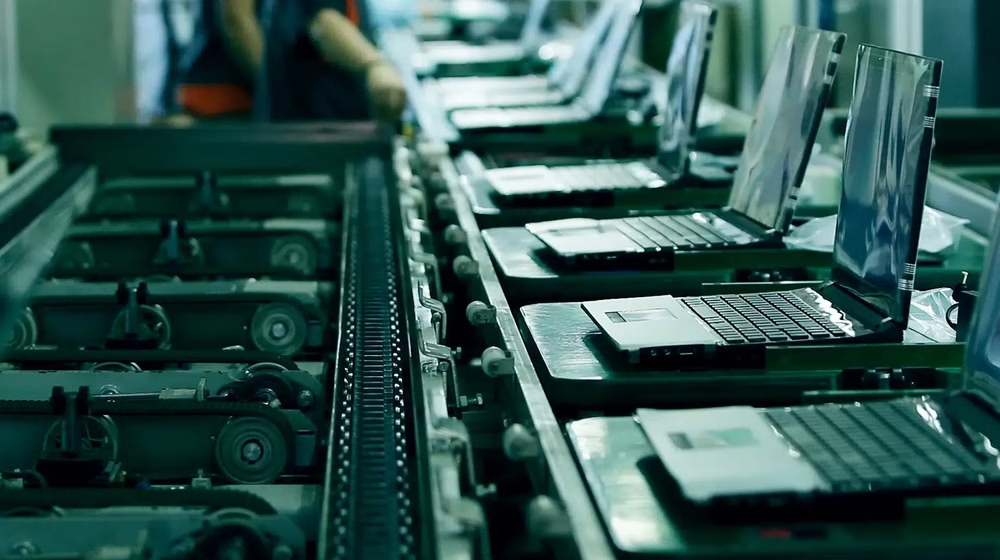The announcement of the Pakistan Google Chromebook assembly line has generated considerable attention, marking what officials describe as an important step toward strengthening the country’s digital and industrial capabilities. Although the project has only been announced rather than fully launched, it still represents a significant milestone for Pakistan’s long-term technology goals.
Deputy Prime Minister and Foreign Minister Ishaq Dar made the announcement during a ceremony in Islamabad, calling the initiative a momentous occasion for the nation’s tech sector. He highlighted that the Pakistan Google Chromebook assembly line would play a major role in making digital devices more accessible and affordable for students, teachers, and professionals. This move aligns with the government’s broader vision of building a digitally empowered society.
The assembly line will operate at the National Radio & Telecommunications Corporation (NRTC) facility in Haripur, a major industrial hub known for its technical expertise. According to the plan, the facility will have the capacity to produce up to 500,000 Chromebooks annually by 2026. These devices are expected to be high-quality, secure, and budget-friendly, with a strong focus on educational and public sector needs. The Pakistan Google Chromebook assembly line is designed to support both digital learning and administrative efficiency across various sectors.
A major benefit of establishing this assembly line is the potential boost to local manufacturing. By assembling Chromebooks within Pakistan, the country can reduce import dependency, strengthen domestic production capabilities, and build a more resilient supply chain. The project also supports the government’s goal of advancing its Digital Nation Pakistan Vision and implementing its National AI Policy. Together, these initiatives aim to expand digital access, improve technological literacy, and encourage innovation.
Ishaq Dar explained that the project is not limited to educational impact. The Pakistan Google Chromebook assembly line is also expected to generate new employment opportunities, enhance industrial capacity, and create avenues for future technology exports. Local production means more jobs for engineers, technicians, supply chain professionals, and workers in supporting industries. As manufacturing grows, so does the potential for the country to develop an export-ready technology market.
Google’s involvement adds further value to the initiative. The company’s presence in Pakistan will strengthen collaboration with local startups, entrepreneurs, and developers. Dar noted that this partnership will support capacity building and open doors for Pakistani talent to access global digital platforms. One of the most notable components of the collaboration is a new memorandum of understanding (MoU) between Pakistan and Google, under which 100,000 developers will be trained across the country. This training aims to improve digital skills, support entrepreneurship, and prepare the workforce for emerging technologies.
In addition to device manufacturing and human resource development, both sides plan to work on AI-powered localized solutions. These will include enhanced Android-based services designed to support public safety and administrative services. Such solutions can help modernize government operations, improve service delivery, and promote efficient, tech-driven governance.
The Pakistan Google Chromebook assembly line also supports the government’s efforts to make Pakistan an appealing destination for international tech companies. Dar emphasized that Pakistan is focused on creating a business-friendly environment where global technology firms can operate, invest, and innovate. Policies supporting ease of business, digitalization, and innovation are central to this mission. With improved infrastructure, clearer regulations, and increased cooperation between the public and private sectors, Pakistan aims to position itself as a regional technology hub.
While the project is still in its early stages and has not yet become fully operational, it represents a promising direction for the country. If implemented effectively, the initiative could significantly reduce the cost of digital devices, expand access to technology, and foster the growth of a skilled digital workforce. It also signals Pakistan’s intention to participate more actively in global technological development and manufacturing.
The Pakistan Google Chromebook assembly line is more than a technology announcement; it is a symbol of the country’s shift toward innovation, self-reliance, and long-term digital growth. With strong partnerships, skill development programs, and a clear policy direction, Pakistan has the opportunity to strengthen its place in the global tech landscape.



